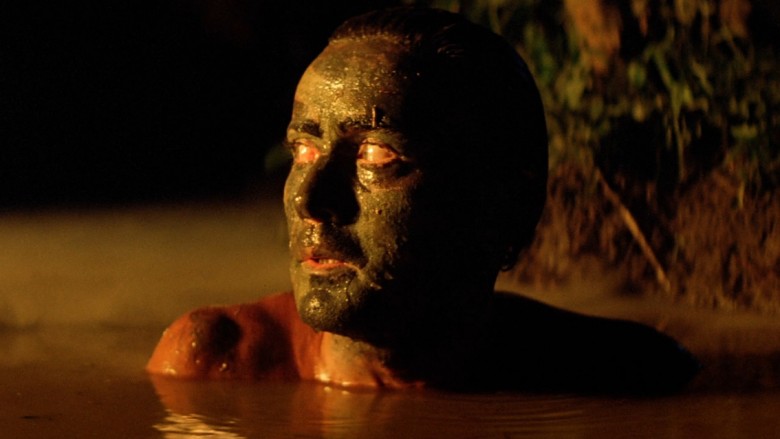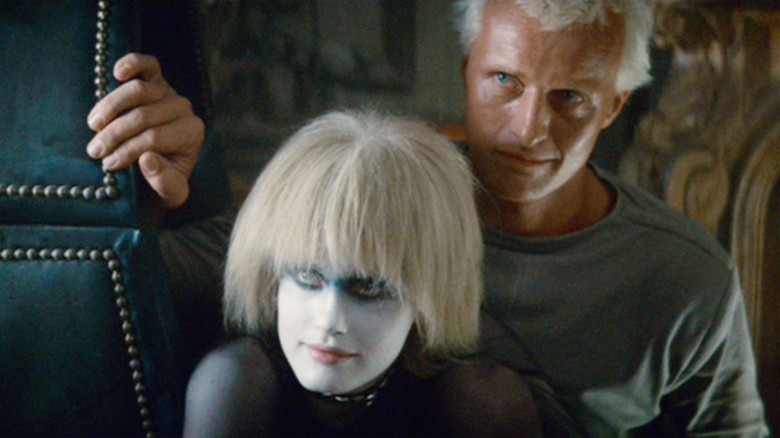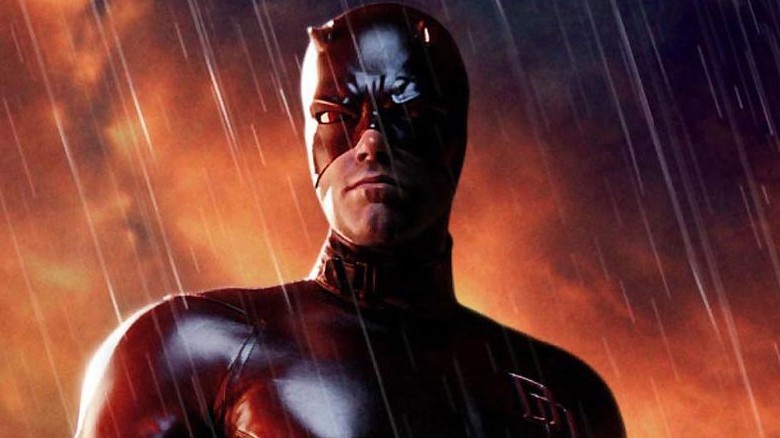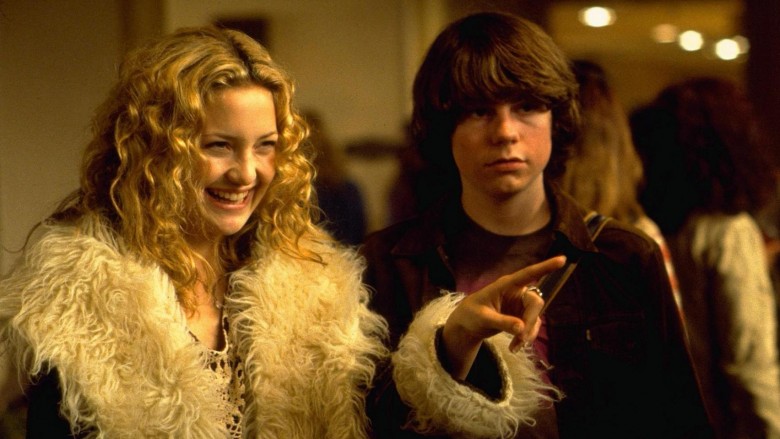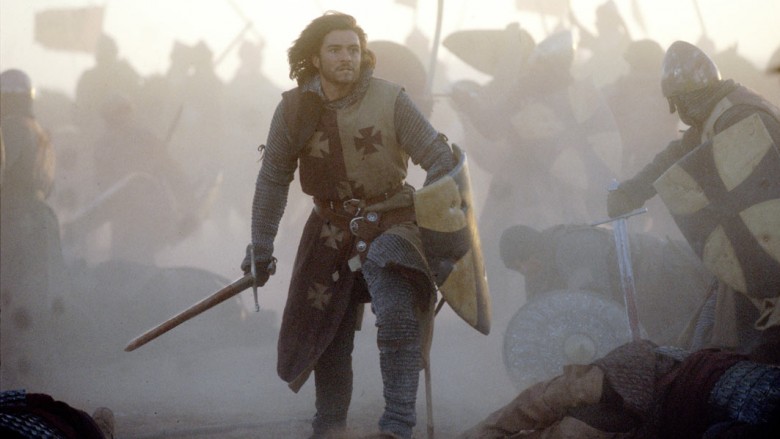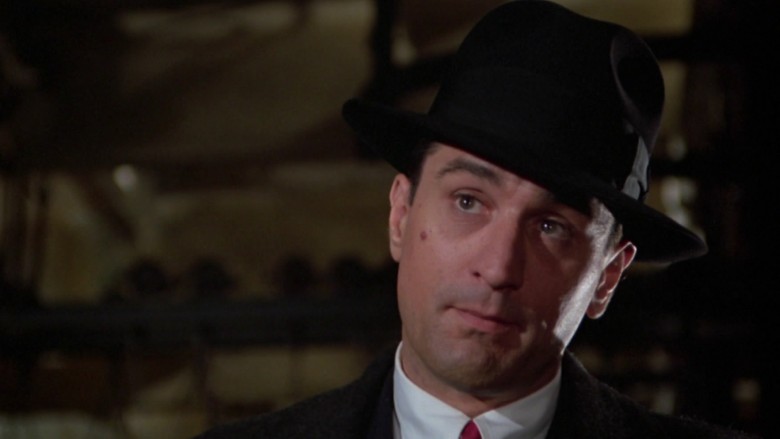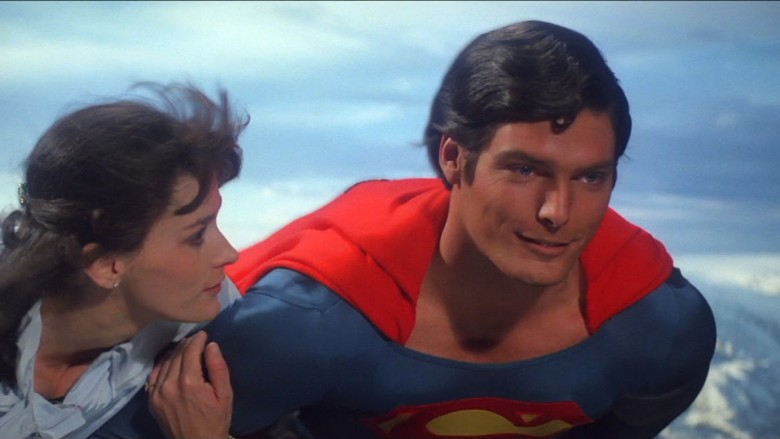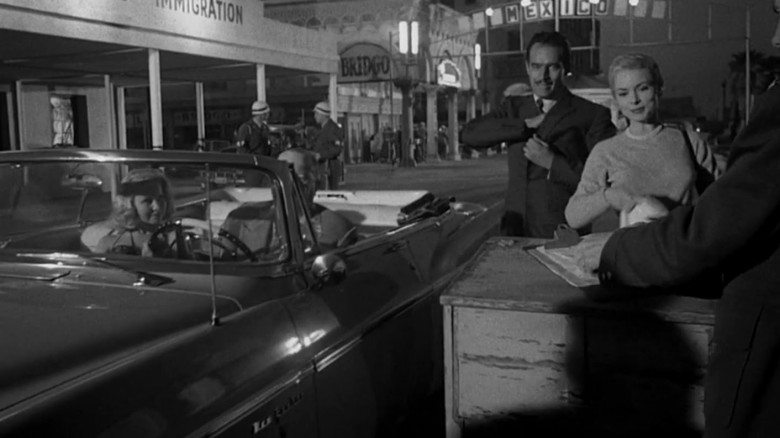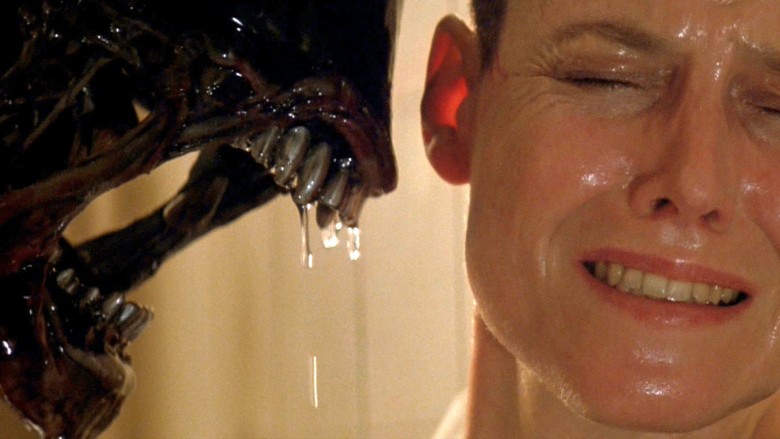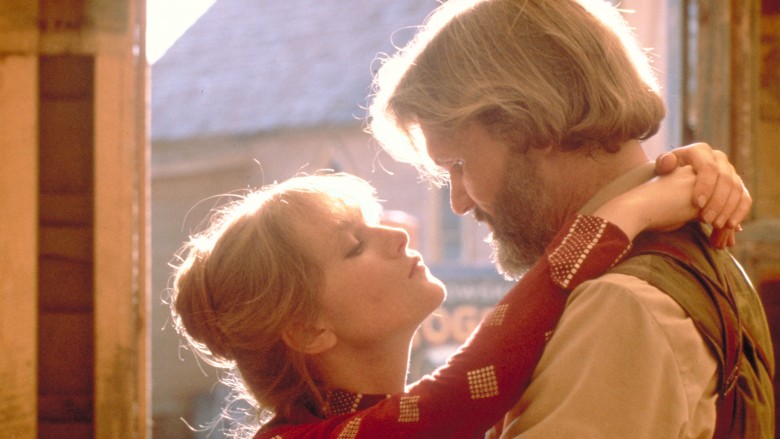Movies That Only Make Sense If You Watch The Director's Cut
We may receive a commission on purchases made from links.
The director's cut of a film might seem like required viewing only for the most hardcore fans. But what if it's the only version of the movie that makes sense? Thanks to pressure from studios over running time and other issues, countless movies have fallen victim to the heavy hand of over-editing. Thankfully, these director's cuts are here to restore them to their originally intended cinematic glory.
Metropolis
You may have watched Fritz Lang's Metropolis and wondered what the heck it's about. Sure, the horrors of urban city living are there, but huge plot points and narrative arcs are introduced and then seemingly dropped without another thought.
As it turns out, Metropolis was cut substantially after its theatrical premiere in Berlin in 1927. Critics claimed the movie was too long, but the real reasoning behind the edits was the film's unapologetic communist message. Directors and film buffs started working to restore the movie to Fritz Lang's original vision in 1970; in 2008, a damaged version of the cut footage was found in Argentina and restored over a period of two years. The restored "director's cut" version, known as "The Complete Metropolis," has now been shown at various film forums, further bolstering the film's classic status. Let movie buffs everywhere rejoice.
Apocalypse Now
You aren't a movie snob unless you include Apocalypse Now among your favorite films—with the caveat "the director's cut, of course." The theatrical version is a widely beloved touchstone of modern cinema, but it lost some important stuff along the way—and director Francis Ford Coppola evidently agreed, given that he made the unusual decision to release his cut, entitled Apocalypse Now Redux, to theaters in 2001.
The Redux version adds 49 minutes of footage focusing on the de Marais rubber plantation, opening a frank discussion on colonialism—specifically French colonialism in Vietnam. Film scholars and those who have studied its source material, Joseph Conrad's Heart of Darkness, argue that much of the political message of the movie is lost without these scenes. Coppola has continued to market both versions, packaging the original and redux versions together in a collector's set.
Blade Runner
A whopping seven different versions of Blade Runner have surfaced since its theatrical release in 1982. During test screenings, the film received mixed feedback, so its producers continued to play with it well into its theatrical releases in New York and Los Angeles. In 1993, director Ridley Scott released his director's cut on LaserDisc, with DVD to follow in 1997. Many of the complaints about the theatrical versions (too long, too violent, not violent enough) were assuaged in the new version. Most notably, Harrison Ford's voiceover was removed, and the "happy ending" the studio mandated for the theatrical release was replaced, changing the entire message of the movie. Roger Ebert, who'd been lukewarm about the movie after seeing it in the theaters, praised the director's cut version—and even added it to his "great movies" list.
Daredevil
The movie that created the second iteration of Bennifer (Ben Affleck and Jennifer Garner) was a critical and commercial dud, but its director's cut has a surprising number of impassioned fans.
As Den of Geek's Karl Hodge explains, "Studio meddling ruined this movie. They trimmed out the darkness and filed down the edges; cutting out a whole sub-plot and ramping up the romance until the whole thing—in the words of Talking Heads—stopped making sense." Most importantly, the director's cut gives the movie what it lacked in the theatrical release: a plot. "Now that the movie makes sense," Hodge writes, "you won't feel guilty about enjoying everything that was right about the original cut."
Donnie Darko
Critics swooned over Donnie Darko, but the movie failed to gain mainstream appeal during its theatrical run, which started just six weeks after 9/11. Some have theorized that the movie didn't receive much advertising or promotion because it features a plane crash—but even setting that aside, its time travel/cosmic wormhole plot is notoriously difficult for some to follow.
In 2004, Richard Kelly released a director's cut with 20 minutes of extra footage, an extended soundtrack, and a fictional book The Philosophy of Time Travel, which many fans claimed helped them understand the plot better than the extra footage. Salon critic Dan Kois took it upon himself to summarize the contents of the book and explain the movie's many loose ends, and a limited edition reissue contains the original and director's cut with additional commentary by Kelly and Kevin Smith.
Almost Famous
It's hard to believe that when it was released in 2000, Almost Famous was a box office bomb. Beloved today, Cameron Crowe's classic rock 'n' roll road trip received four Oscar nominations, and Roger Ebert called it the best film of the year. Diehard fans of the movie insist that the director's cut—or "Bootleg cut"—is a vast improvement, adding 36 minutes of footage and allowing for deeper development of the three main characters.
Fans of the film, including former ESPN writer Bill Simmons, relish an eleven-minute scene in which William plays Led Zeppelin's "Stairway to Heaven" in its entirety for his mom. "It's indescribable," Simmons writes. "I loved it; some hated it." Ultimately, Crowe couldn't get rights to the song so the scene had to be cut from the theatrical release. Others note a deleted birthday cake scene for Kate Hudson's character which illuminates her range as an actress and expands William's understanding of Penny's real love for Russell. Jeremy Conrad at IGN calls the bootleg cut an essential version for fans. "I loved the original film, but I wanted more. It actually felt a little cut short in parts, and this revisiting creates almost a whole new movie that is much more complete, yet just as entertaining and charming as the original."
Kingdom of Heaven
Ridley Scott's epic 2005 dramatization of the Crusades earned mixed reviews during its theatrical run. Unhappy with the film's reception, Scott quickly released a director's cut that restored 45 minutes of footage the studio had forced out. Critics were quick to praise the expanded version, arguing that the additional scenes were essential to the development of the plot—and the understanding of Orlando Bloom's character in particular.
Once Upon a Time in America
Sergio Leone's Once Upon a Time in America has an extremely strong argument for its director's cut. Leone had originally envisioned two epic films that would each run three hours, but was pressured to condense them into one movie, originally running at 269 minutes. The studio shortened the theatrical release to 229 minutes, and its American distributors further whittled the movie down to 139 minutes—and cut its scenes into chronological order, much to Leone's chagrin.
Unsurprisingly, the Robert De Niro-led movie was a box office disaster in its Frankenstein form. But Leone earned a measure of belated vindication: in 2011, under the supervision of the director's estate, the original 269-minute version was pieced together and premiered at the Cannes Film Festival the following year. The movie, in its original form, is now widely considered to be one of the best gangster films ever made.
Aliens
The theatrical version of James Cameron's Aliens is pretty much universally acclaimed. But fans jumped for joy when a director's cut was released as a "special edition" in 1992. The deleted scenes, adding roughly 17 minutes of footage in all, fixed some important plot points, including Newt's family's first encounter with the spacecraft, Ripley learning that her daughter died while she was in hypersleep, an extended sequence involving sentry guns against the aliens, and extended dialogue between Ripley and the marines. Cameron also went back and restored and reworked all the visual effects in the deleted footage. Aliens' special edition was later included in the 20th anniversary Alien Legacy set.
Superman II
Director Richard Donner was removed from Superman II in 1977—with roughly 75 percent of the film finished—and replaced with Richard Lester. Though the movie was near completion, in order to receive directorial credit, Lester reshot nearly half the movie, meaning there was an original version of Superman II that collected dust for decades.
In 2000, while researching a restoration of the original Superman, editor Michael Thau discovered the lost Donner footage, including deleted scenes featuring Marlon Brando as Jor-El, much to the delight of fans. With Donner's help, Thau restored the original and released it in 2006, prompting Todd Gilchrist at IGN to deem it "the best director's cut of 2006." But unlike the other films on this list, the Donner cut of Superman II isn't necessarily an improvement on the released film so much as it is a different movie entirely. Keith Phipps, at A.V. Club, writes that Donner "deserves a great deal of the credit and blame for both versions of Superman II, making the Donner cut more of "a curio, not a corrective." That said, a review at AMC claims the Donner cut places the Superman legend securely into the land of the epic, rather than the comic-book camp (albeit popular) Lester version, which, in the end, is perhaps a matter of taste.
Watchmen
Like Daredevil, Watchmen was another highly anticipated summer superhero blockbuster movie that didn't fare as well at the box office as expected, and received some serious criticism from fans and non-fans alike. As Rotten Tomatoes asserts, the "complex narrative structure may make it difficult for it to appeal to viewers not already familiar with the source material."
The Director's Cut version hoped to change that, with thirty minutes of extra footage. Though director Zack Synder calls this "the definitive version," fans seem to prefer what's known as the Ultimate Cut, which includes the animated short film Tales of the Black Freighter. Ultimately the problem may lie with Watchmen's epic source material, the graphic novel. Matt Goldberg, at Collider, writes, "after watching the Director's Cut of Watchmen, I'm convinced if Warner Bros. had said to Snyder, 'Here's all the money you want and there's no time limit on your film,' he would have made a frame-for-frame remake of the graphic novel, and that include Tales of the Black Freighter."
Touch of Evil
Orson Welles' 1958 crime noir Touch of Evil went through numerous studio cuts and condensations before its theatrical release—and Welles claimed most of the edits were made without his knowledge or his permission. In 1998, working from Welles' original 58-page memo, Walter Murch re-edited the film with Bob O'Neill, the head of Universal's restoration program. The resulting home release of this version is largely considered to be the closest to a "director's cut" that will ever be possible. It's hard to determine why exactly the studio set about editing the film the way it did—Welles claimed he was fired from the editing process, others said he was simply M.I.A. Either way, the movie, on its release, was marketed as a B-picture despite its major stars and genius director. Critics and fans alike revel in Murch's restoration claiming that it transforms Touch of Evil into the dark, brooding noir picture Welles always intended it to be.
Welles' daughter Beatrice barred the film from being screened at the Cannes film festival, citing that they hadn't had her permission to re-cut it, but she later admitted, "It was wonderful. I thought they did an amazing job and it was very well done. It was what he wanted and it made much more sense than that chopped-up nightmare there was before."
Alien 3
Fans of the Alien franchise agree that the director's cut of David Fincher's Alien 3, or the Assembly Cut, is the only version that matters. By the time Fincher was hired, the production was a complete mess: over-budget, over-schedule, over-wrought. The end product is the theatrical release, a tug-of-war between the studio and Fincher, which resulted in him essentially walking away from the film. Ryan Lambie at Den of Geek runs down the major reasons why the Assembly Cut is the only version that even makes sense, including the reintroduction of essential dialogue, major plot points involving alien colonization, and even the shock ending—all of which bring the movie back to Fincher's dark vision, and make it a more nuanced film overall.
Alexander
As Roger Ebert critic Peter Sobczynski writes in his reappraisal of the film, Oliver Stone's Alexander was a passion project that crashed and burned at the box office, scorned by fans and critics alike. Despite the disaster, Stone couldn't let the movie lie, and released not one, not two, but three director's cut versions, culminating in the Ultimate Cut, tied to the movie's 10th anniversary.
The fourth time was the charm for Alexander. Major issues such as chronological disorder, problems with the narration, and the true story of Alexander's sexuality were been amended by Stone in the new versions. "Oddly enough, even though this version of Alexander is considerably longer than the original, it actually feels shorter because the scenes now have a proper rhythm," Sobcynski argues. "It is now an incontestably better work than it once was and deserves to be considered as the proper version of the film."
Heaven's Gate
Hopes were high for Michael Cimino's Heaven's Gate , which was pegged as one of the more highly anticipated movies of 1980. Unfortunately, it's mostly remembered as the disastrous financial flop that racked up a $44 million dollar budget and essentially bankrupted United Artists. But thanks to studio interference, the version filmgoers ignored during its run in theaters wasn't true to Cimino's vision—and finally, 33 years later, Heaven's Gate got the director's cut it so desperately needed.
Cimino's cut, clocking in at three hours and 36 minutes, wowed critics and vindicated fans. "I was struck by how inseparable the film's beauty now seems from what we know of its disaster," Slate's Dana Stevens wrote. "In America I get the feeling it's OK to spend $40m for the concept of entertainment," observed Cimino. "But if you spend such an amount for a personal film, one that forces you to think, then people get suspicious." Now restored to the director's original vision, Heaven's Gate is more than just a great movie—its story is a commentary on the commodification of art.


